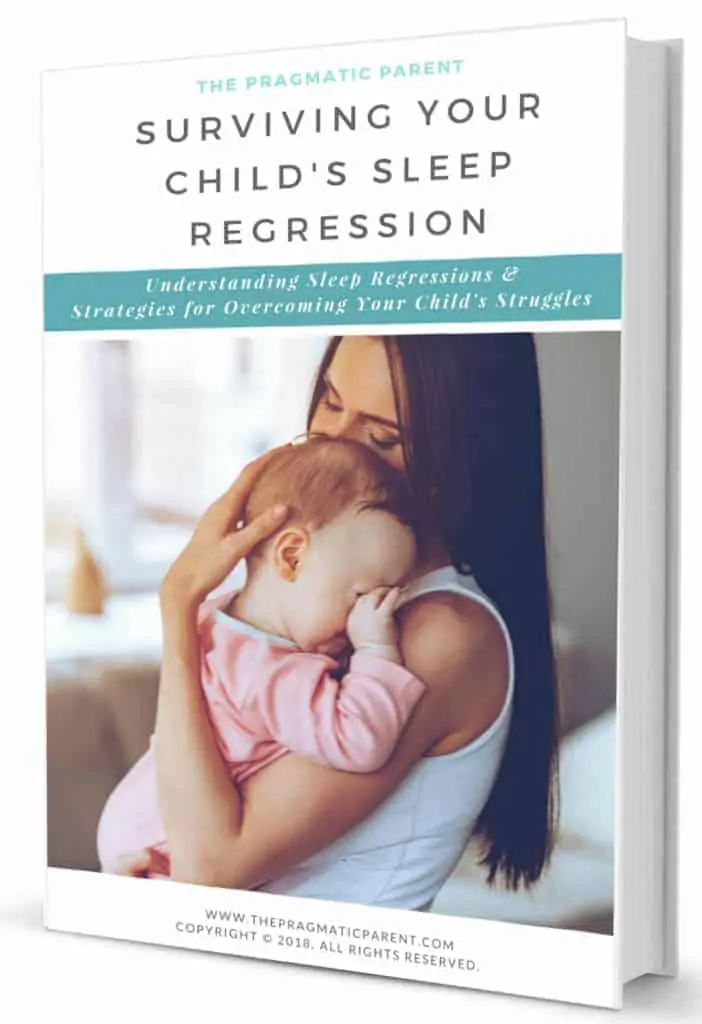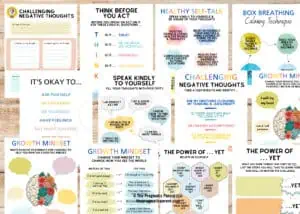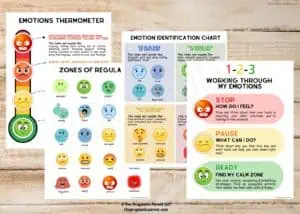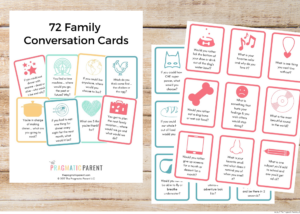When your child stops sleeping, fights naps and wakes up frequently you may be asking – is this a sleep regression? What now? Get the details on surviving each baby sleep regression including the 6 week sleep regression, 4 month sleep regression, 8 month sleep regression, 18 month sleep regression and 2 year sleep regression!
Need to Know Tip for Surviving Every Sleep Regression
Sleep regressions are every sleep-deprived parent’s biggest fear. When your child’s sleep goes off the rails, and during a sleep regression this can last weeks at a time, you know your own sleep just went out the window. You may be pulling out your hair, wondering, what is going on with my baby!?!
The most common questions I receive about sleep regressions are:
- How long do sleep regressions last?
- What do we do if my child is going through a sleep regression?
- If my child is sleeping through the night, do I need to worry about sleep regressions?
- How do I prevent bad habits from forming during this time?
Before we dig into answering these common questions about sleep regressions, first, let’s talk about what a sleep regression is and when they are most likely to occur.
If You’re in a Hurry or Looking for Quick Sleep Regression Wins…
What is a Sleep Regression?
A sleep regression is when your baby, who was previously sleeping well, possibly even through the night, suddenly stops napping, fighting sleep times, and waking more frequently. Essentially, sleep goes out the window and chaos starts, without any known cause (such as traveling, teething, change in routine, etc.)
One way to think of a sleep regression, is that it’s not actually regression at all, but a sign of their progressing development. These important parts of her growth signal your baby approaching a developmental milestone, which just happen to affect your baby’s sleep.
Cognitive milestones (aka neurological milestones) are critical periods of development which change a baby’s perception of the world, as outlined in the book The Wonder Weeks. This may be their perception of distance from you (the distance between you and her when you walk away or move further away) and object permanence (separation anxiety.)
Physical milestones are developmental leaps which including standing, crawling, babbling, sitting, clapping hands, walking, cruising and rolling.
Babies process these giant leaps during periods of sleep, which means that it becomes common for them to wake more often during REM sleep as they experience these milestones.
Of course, it’s always important to rule out any medical issues with development or a food allergy, but if you rule these reasons out for the changes to your baby’s sleep, then focus on your baby’s new skills and leaps in development. Is your baby more clingy with you or your partner, learning new skills, or gets easily upset when you leave the room?
How Long Does a Sleep Regression Last?
Typically, a sleep regression can last anywhere from 2 weeks to 6 weeks, most averaging around 3-4 weeks in length. Most sleep regressions tend to happen at major cognitive and developmental milestones and typically appear around the ages:
- 6 Week Sleep Regression
- 4 Month Sleep Regression
- 6 Month Sleep Regression
- 8 – 10 Month Sleep Regression
- 18 Month Sleep Regression
- 2 Year Sleep Regression
Don’t worry, most children don’t hit each of these sleep regression ages, and some don’t hit any of them. If they do hit a sleep regression; take a deep breathe, load up on coffee and know it’s completely normal, common and it will pass.
What Do I Do if my Child is Going Through a Sleep Regression?
The most important thing you can do for a baby who is hitting a sleep regression is to continue with your daily routine as is, don’t give up on naps, finesse your bedtime routine ensuring it’s calm with minimal stimulation, and don’t make any sudden changes trying to “fix” something that’s not actually broken.
The good news? Your baby takes time to master each new milestone of theirs, and then once the newness wears off, they’ll go back to sleeping well again. Until the next major development shows up on the radar again.
Download Your Routine Tracker – The Starting Place for Creating a Better Routine and Great Sleep Habits
1. Don’t Build Bad Habits During a Sleep Regression
While in the moment, you may think rocking your child to sleep each night will be a good short term fix for their sleep regression, this is actually creating a bigger problem you’re going to have to face even after the sleep regression has ended.
Now is not the time to build bad habits – rocking your child to sleep, sleeping with them, regressing on your sleep training, and giving into another cup of water, another hug, another bedtime story each night. Once or twice is one thing, but every time you do this, you are undoing all your child’s work of going to sleep and putting themselves back to sleep – ON THEIR OWN.
You don’t want their sleep cycles dependent on the crux of a bottle, breast or anything else that comforts him can turn into a long-term habit you’ll have a hard time breaking down the road.
Bad sleep habits are hard to break, especially as your child gets older and they need the crux to fall asleep. Avoid negative sleep associations as much as possible of your sleep troubles may have a harder, longer time to remedy themselves.
Read more on Each Major Sleep Regression Here:
- 6 Week Sleep Regression
- 4 Month Sleep Regression
- 6 Month Sleep Regression
- 8 – 10 Month Sleep Regression
- 18 Month Sleep Regression
- 2 Years Old Sleep Regression (aka Toddler Sleep Regression)
Sleep Tools to Help With Each Baby Sleep Regression
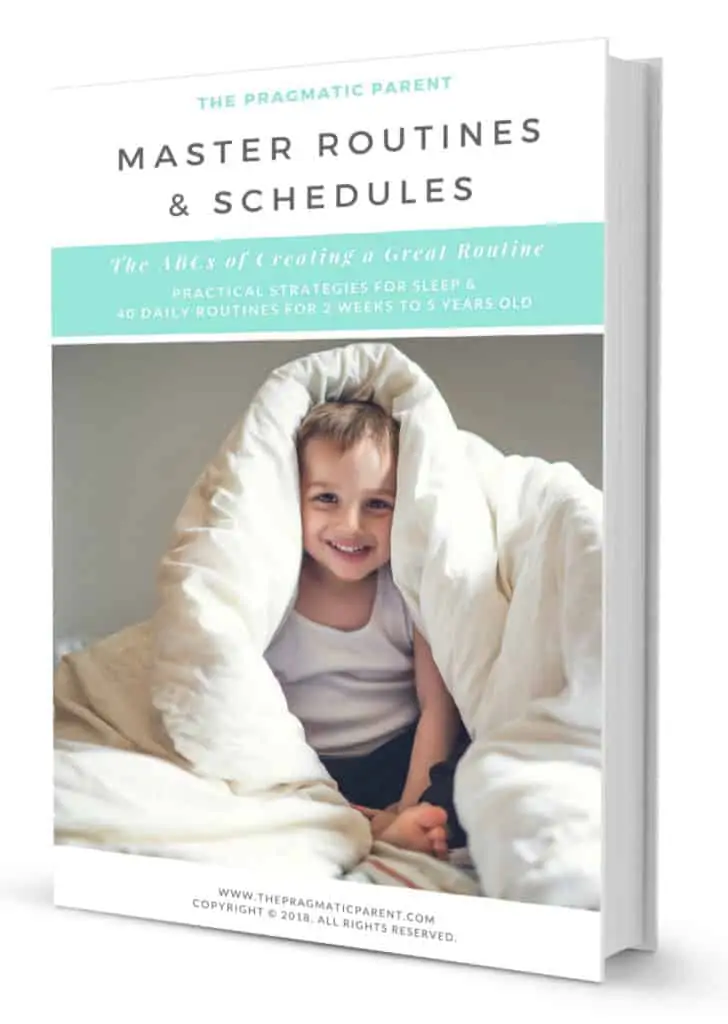
Learn how to start creating a routine, establishing wake up and bedtimes, strategies for working through nap transitions, prepping for daylight savings time to keep your routine on track and logging your baby’s sleep patterns… all helping you rock a routine and simplify life when your days flow.
Surviving Your Child’s Sleep Regressions Ebook